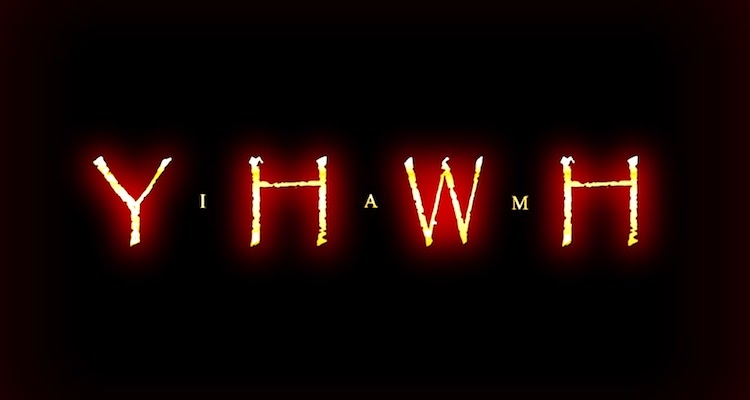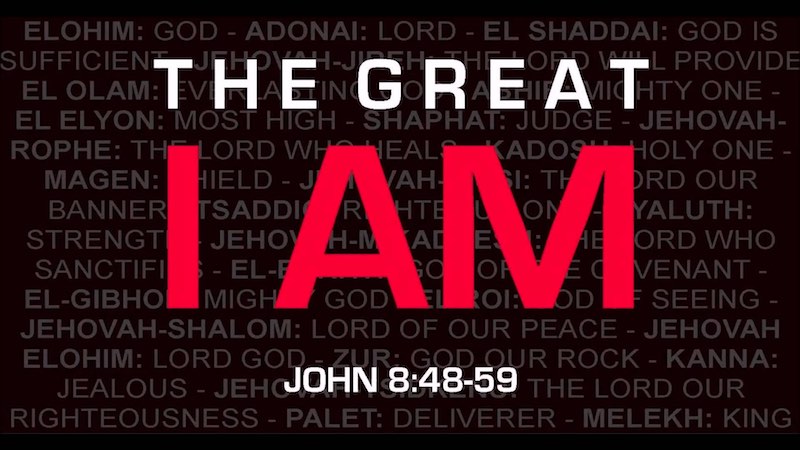When I was born, my parents named me Daniel. I learned early in life that my name comes from the Hebrew language and means God is my judge. Unfortunately, in the American culture names are often shortened and my name was reduced to Dan. I didn’t mind being called Dan in my youth, however, when I visited Israel in 2005 I had a conversation with an Israeli who reminded me of the importance of my full name and that God is part of my name. From that time on, I made sure everyone knew that my name is Daniel.
There is meaning and significance in a name and we need to be careful regarding how we address others by their given name or by the name which they prefer to be called. In this week’s Torah Portion we read about the name of God described in a descriptive manner which helps us to understand who He is.
Shemot – Names
This week’s Torah Portion starts at the beginning of the book of Exodus. In Hebrew, the book of Exodus is called שמות – Shemot, which simply means “Names.” The Hebrew names of the books of the Bible are often taken from the first verse or two of the text and so it is with this book:
Now these are the names of the sons of Israel who came to Egypt with Jacob; they came each one with his household: Reuben, Simeon, Levi and Judah; Issachar, Zebulun and Benjamin; Dan and Naphtali, Gad and Asher. – Ex. 2:1-4
It is obvious why the book of Exodus is called Shemot – Names in Hebrew as we read the list of names of those who went down to Egypt with Jacob.
Although the Hebrew title of the book, Shemot – Names, and the introduction of the book focus on Jacob and the names of his sons who went down to dwell in the land of Egypt, a good portion of the book of Exodus focuses on the exit of the children of Israel, which took place approximately five generations after Jacob. It is as a result of the great exodus of the children of Israel from Egypt that the book derives its English name, Exodus. There is an interesting connection to the two names of this book, Exodus and Names (Shemot), as we look deeper into this week’s reading.
The Call of Moses
Early in the book of Exodus we read about the oppressive days of slavery in Egypt and of the killing of the baby boys of Israel. We also read about the difficult account of the birth of Moses during those days as well as the unusual adoption of Moses by Pharaoh’s daughter. As a result of his adoption, Moses lived a privileged life in the court of Pharaoh while the Israelites suffered terribly under a strong hand of forced labor. At the age of forty Moses fled from Pharaoh’s court into the land of Midian in order to preserve his own life.
It was at the end of another forty years of Moses’ life that the LORD appeared to Moses through the burning bush which was not consumed. After explaining who He was and why He had come, God gave Moses this charge:
“Therefore, come now, and I will send you to Pharaoh, so that you may bring My people, the sons of Israel, out of Egypt.” But Moses said to God, “Who am I, that I should go to Pharaoh, and that I should bring the sons of Israel out of Egypt?” And He said, “Certainly I will be with you, and this shall be the sign to you that it is I who have sent you: when you have brought the people out of Egypt, you shall worship God at this mountain.” – Ex. 3:10-12
God had previously explained to Moses that He had seen the oppression of the people of Israel and that He had heard their cry (Ex. 3:7-9). It was now time to bring the people out of Egypt and Moses was chosen to be God’s appointed leader to bring them out. God also confirmed to Moses that He would be with him.
Moses struggled to accept this new responsibility which God had assigned to him and he had different points of uncertainty which he wanted to have clarified; including the name of the God with whom he was speaking:
Then Moses said to God, “Behold, I am going to the sons of Israel, and I will say to them, ‘The God of your fathers has sent me to you.’ Now they may say to me, ‘What is His name?’ What shall I say to them?” God said to Moses, “I AM WHO I AM”; and He said, “Thus you shall say to the sons of Israel, ‘I AM has sent me to you.’” – Ex. 3:13-14
God answered Moses’ question and told him His name, His memorial name to all generations.
The Name of God
When God replied to Moses’ question regarding His name, God responded with the Hebrew phrase אהיה אשר אהיה – Ehyeh Asher Ehyeh, which is literally translated “I will be that which I will be!” (Ex. 3:14). We actually see this same word usage of “I will be” two verses earlier when God told Moses that He would be with him in going down to Egypt; ויומר כי אהיה עמך – Vayomer Ki Ehyeh Im’cha, which is translated “And He said, I will be with you…” (Ex. 3:12a). Therefore, it seems that when God was telling Moses His name, God was also reminding him and the children of Israel that His presence would be with them.
Even though God began by telling Moses that His name is אהיה אשר אהיה – Ehyeh Asher Ehyeh – I will be that which I will be, God went on to give Moses the more definitive form of His name in verse fifteen which is hidden by the English translation:
God, furthermore, said to Moses, “Thus you shall say to the sons of Israel, ‘The LORD, the God of your fathers, the God of Abraham, the God of Isaac, and the God of Jacob, has sent me to you.’ This is My name forever, and this is My memorial-name to all generations. – Ex. 3:15
Where it is written “The LORD,…” in the verse above, God revealed His name to Moses to share with the children of Israel.
This name “LORD” in the Hebrew is simply written as יהוה, of which we have no equivalent in English or any other language. The pronunciation of this name has been lost in time. Some believe it is pronounced “Yahweh” while others believe it is pronounced “Jehovah” but the honest truth is that we really cannot be 100% certain. In the Hebrew language today we simply use the respectful title of God, אדוני – Adonai, whenever reading this unique name of God in the Scriptures.

God’s Memorial Name
The Hebrew letters of this unpronounced name of God, יהוה, and the original explanation of God’s name to Moses, אהיה אשר אהיה – Ehyeh Asher Ehyeh – I will be that which I will be, are very similar in their root letters but not identical. Although we can translate the longer explanation of God’s name we are not able to translate the shorter name of God, however, one explanation is that the shorter name is a combination of Hebrew words to bring forth a richer meaning.
In modern Hebrew the verb “to be” in past, present, and future tenses is היה, הווה, יהיה – haya, hoveh, ihi’yeh. In the Hebrew name יהוה, LORD, there appears to be a combination of all three tenses. Therefore, through this name of God He was declaring that He is the One who was, the One who is, and the One who will be. He is the Alpha and the Omega and everything in between.
This is why God told Moses to tell the Israelites: “…The LORD, the God of your fathers, the God of Abraham, the God of Isaac, and the God of Jacob, has sent me to you.’ This is My name forever, and this is My memorial-name to all generations.” (Ex. 3:15) He was the God of their fathers in the past, He was the God of Moses and the Israelites at that time, and He would continue to be God to all generations in the future. Whereas man-made gods and idols exist for a time, the LORD is beyond time. He forever exists in the past, present, and future. It is for this reason that Bible scholars translate God’s Hebrew name, יהוה, into English as “I Am,” the ever existent One.
God’s Name – God’s Identity
We are created as finite beings who are limited in our understanding of the infinite God of the universe. By understanding the meaning of God’s name we can begin to comprehend the essence of who He is, the eternal God who is always with us.
When the Messiah walked this earth He tried to explain to others exactly who He is. In one dialogue with some fellow Jews, Yeshua was trying to defend His relationship with the Father in heaven and to explain His own unique existence. The end of the conversation went as follows:
“Your father Abraham rejoiced to see My day, and he saw it and was glad.” So the Jews said to Him, “You are not yet fifty years old, and have You seen Abraham?” Yeshua said to them, “Truly, truly, I say to you, before Abraham was born, I am.” Therefore they picked up stones to throw at Him, but Yeshua hid Himself and went out of the temple. – John 8:56-59
Yeshua was trying to explain to those with whom He was talking that His existence was not limited to the present but transcended time. By stating that He existed before Abraham, He was stating that He is God: the One who always exists, the Great I Am!

The Great I Am
The LORD revealed Himself to Moses and to the Israelites during their years of slavery in Egypt as the ever-existent One, the I Am who is forever with His people. There is great comfort in the revelation of this name and the knowledge of who God is in relation to His people. Each one of us face difficult and trying circumstances in this life that seem unbearable and leave us feeling hopeless at times. We need to always remember that the God of Abraham, Isaac, and Jacob is the Everlasting God, the Great I Am who will never leave us or forsake us. Yeshua came to reveal this reality of who God is when He came to this earth and He continues to be with us today and forever!
Shabbat Shalom!
If you enjoyed reading this article, share it today with friends! We also invite you to sign up for our weekly Torah Portion commentary on the sidebar to the right.
Help keep our weekly commentaries free and available to all. Click here to donate today:
Torah Portion: Ex. 1:1 – Ex. 6:1
Haftara: Isaiah 27:6 – Isaiah 28:23 & Isaiah 29:22-23
Return to Torah Portion Homepage
Copyright Jewels of Judaism. All rights reserved 2018



Very, very special reading. It reached me deep into my heart.
We are coming into heavy and perilous times. So much work to do while we still have light. Soon the darkness will be upon us.
G-d in heaven, help us to have a heavy burden for souls. Give us the boldness and your love and direction to reach out for those who do not yet know you.
Thank you Daniel for this heart felt message.
Thanks Sarah! I appreciate the encouragement.
Daniel